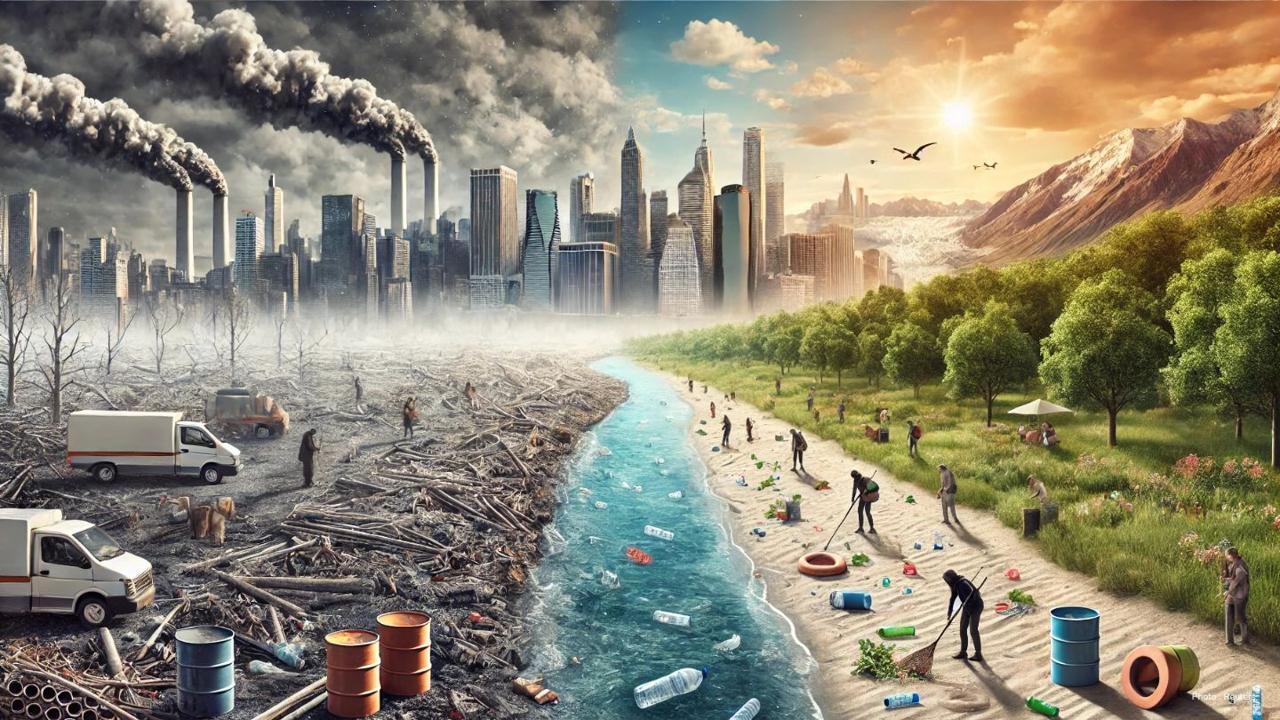
Post by : Saif Ali Khan
Cities around the world are growing rapidly. More people are moving to urban areas, and this growth is bringing many challenges, especially for the environment. Pollution from vehicles, industries, and daily waste is increasing, affecting air, water, and land. In 2025, it has become very important for city governments, businesses, and citizens to work together to reduce pollution and protect the environment.
Air Pollution and Its Solutions
Air pollution is one of the biggest problems in cities. Cars, trucks, buses, and factories release harmful gases like carbon dioxide, nitrogen oxide, and fine dust into the air. These pollutants can cause serious health problems like asthma, heart disease, and lung infections. To reduce air pollution, cities can take several steps:
Promote Public Transport: Encouraging people to use buses, trains, and metro systems can reduce the number of private vehicles on the road. Fewer vehicles mean less pollution.
Adopt Electric Vehicles: Electric cars, scooters, and buses produce little or no pollution. Many cities are providing subsidies and setting up charging stations to support electric vehicles.
Plant More Trees: Trees clean the air by absorbing carbon dioxide and producing oxygen. Urban forests and green belts around cities can help reduce pollution.
Water Pollution and Protection
Water is essential for life, but city water bodies like rivers, lakes, and ponds are often polluted with industrial waste, sewage, and chemicals. Polluted water can cause serious health risks and harm aquatic life. Cities can take actions like:
Proper Sewage Treatment: All wastewater should be treated before it enters rivers or lakes. This prevents chemicals and harmful bacteria from polluting the water.
Reduce Plastic Use: Plastics often end up in rivers and oceans. Cities can encourage the use of reusable bags and containers to reduce plastic waste.
Rainwater Harvesting: Collecting and storing rainwater can reduce pressure on rivers and groundwater. It also helps prevent flooding in rainy seasons.
Land Pollution and Waste Management
Land pollution happens when cities produce large amounts of waste, including plastics, metals, and food scraps. Uncontrolled dumping of waste can damage soil, harm animals, and create health hazards. To manage land pollution, cities can:
Promote Recycling: Separate waste into biodegradable and non-biodegradable categories. Materials like paper, plastic, and glass can be recycled instead of thrown away.
Composting: Organic waste like vegetable peels and garden waste can be turned into compost. Composting reduces waste and produces natural fertilizer for gardens.
Reduce Construction Waste: Construction and demolition materials can be reused or recycled instead of being dumped.
Energy and Sustainable Practices
Energy use in cities also affects the environment. Most energy comes from burning fossil fuels like coal and oil, which release greenhouse gases causing climate change. Cities can reduce environmental impact by:
Switching to Renewable Energy: Solar, wind, and hydropower produce clean energy without harming the environment. Installing solar panels on rooftops and using wind energy in city outskirts can help.
Energy-efficient Buildings: Modern buildings can use less energy by having better insulation, LED lights, and smart heating systems.
Encouraging Green Jobs: Creating jobs in renewable energy, waste management, and environmental protection can support the economy and protect the environment.
Community Participation
Citizens play a key role in protecting the environment. Awareness campaigns, school programs, and community clean-up drives can encourage people to adopt eco-friendly habits. Simple actions like using public transport, reducing water waste, avoiding plastics, and planting trees can make a big difference.
Technology and Innovation
Technology can help cities monitor and reduce pollution. Smart sensors can detect air and water pollution in real-time. Apps can guide citizens to reduce energy use, report illegal dumping, or find recycling centers. Electric vehicles, green buildings, and AI-based traffic control are examples of technology helping cities become cleaner.
Disclaimer
Protecting the environment in cities is not the responsibility of one person or one organization. Governments, businesses, and citizens must work together. Reducing pollution, managing waste, and using clean energy can make cities healthier and safer. In 2025, it is more important than ever to take action. By adopting sustainable practices, cities can protect the environment for future generations while improving the quality of life for everyone today.



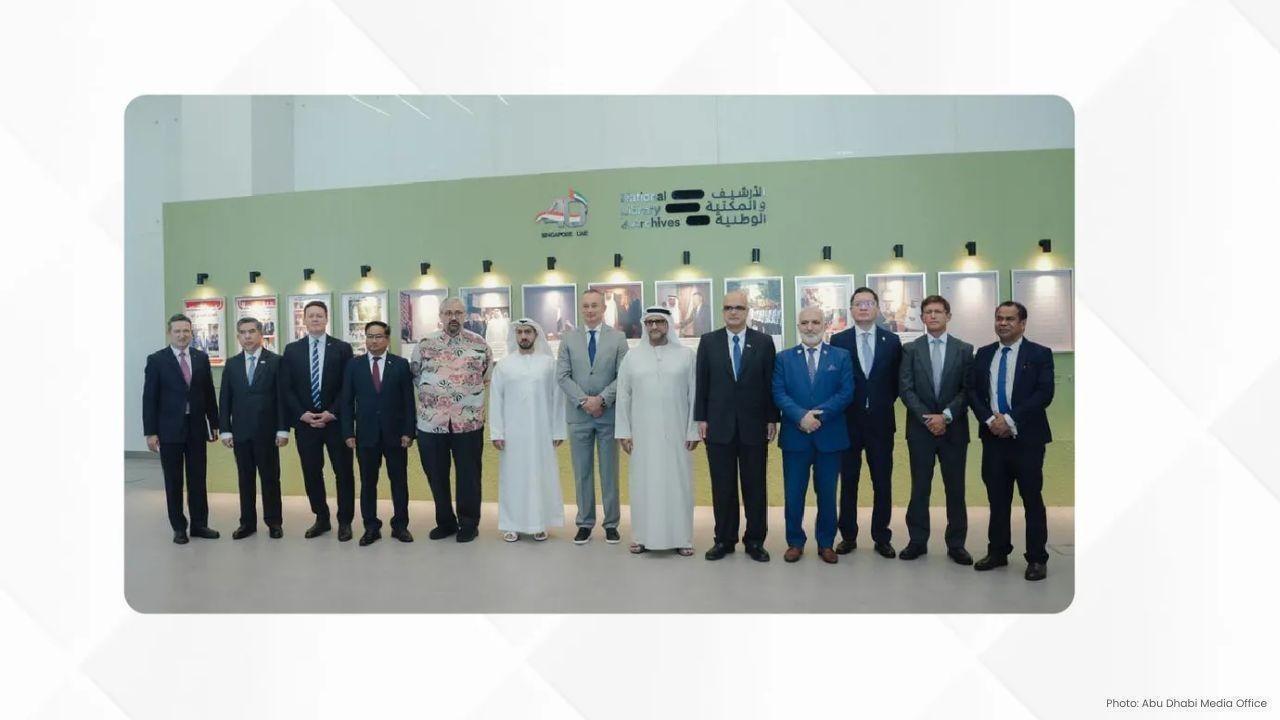
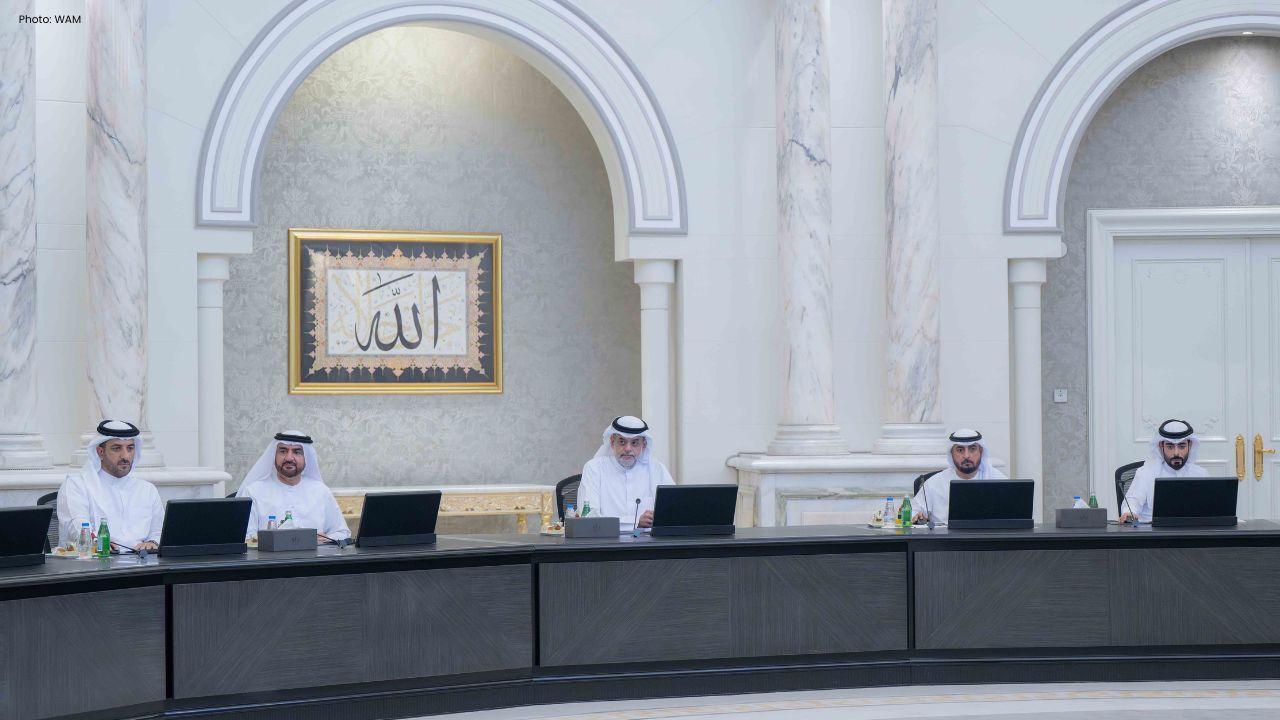

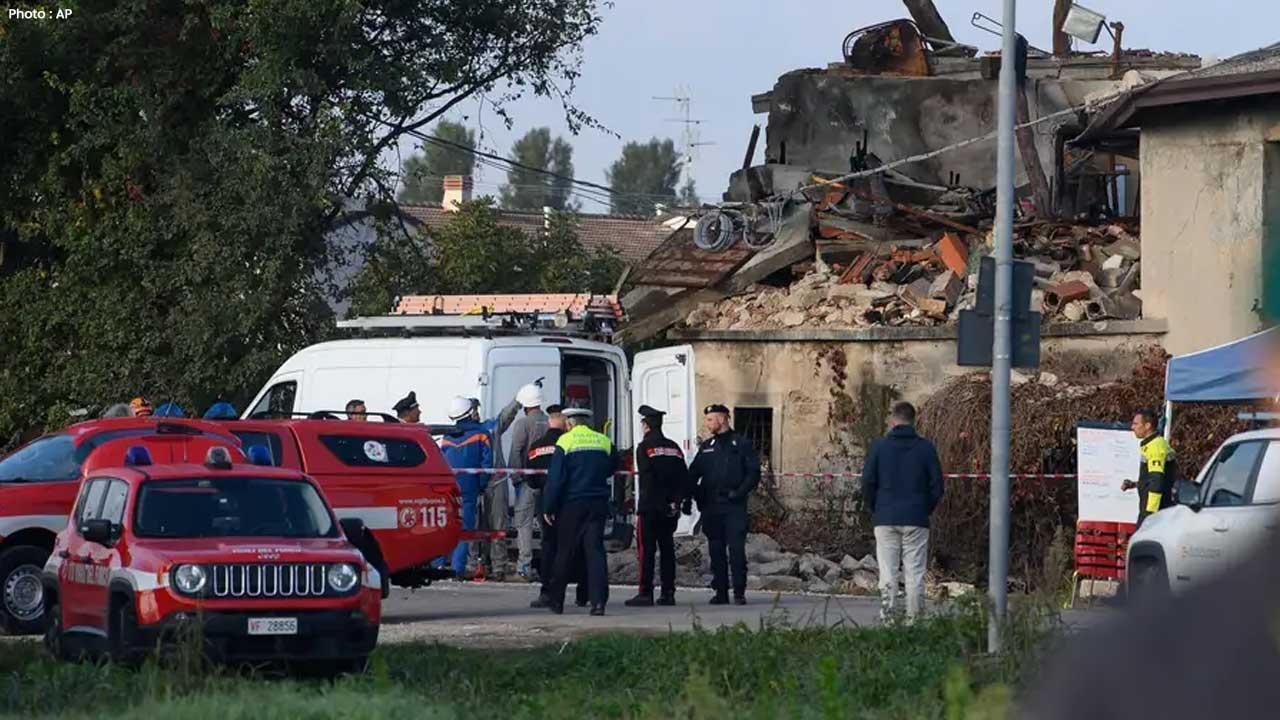

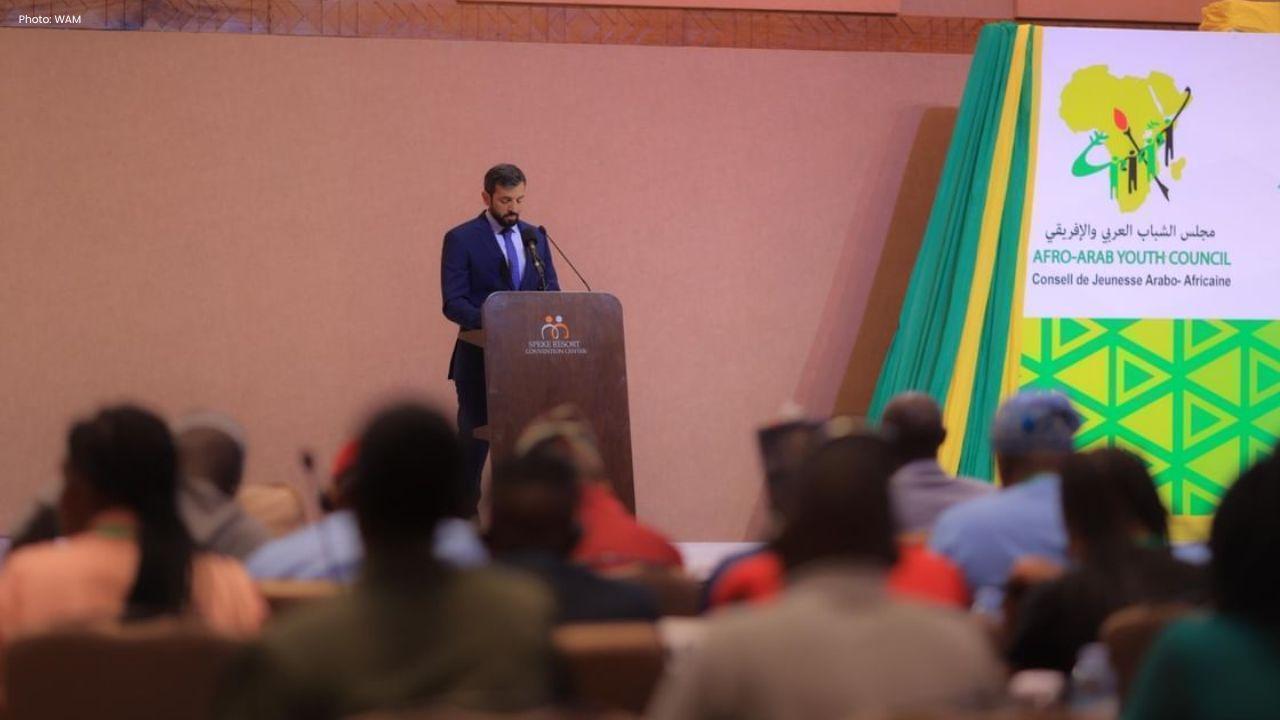
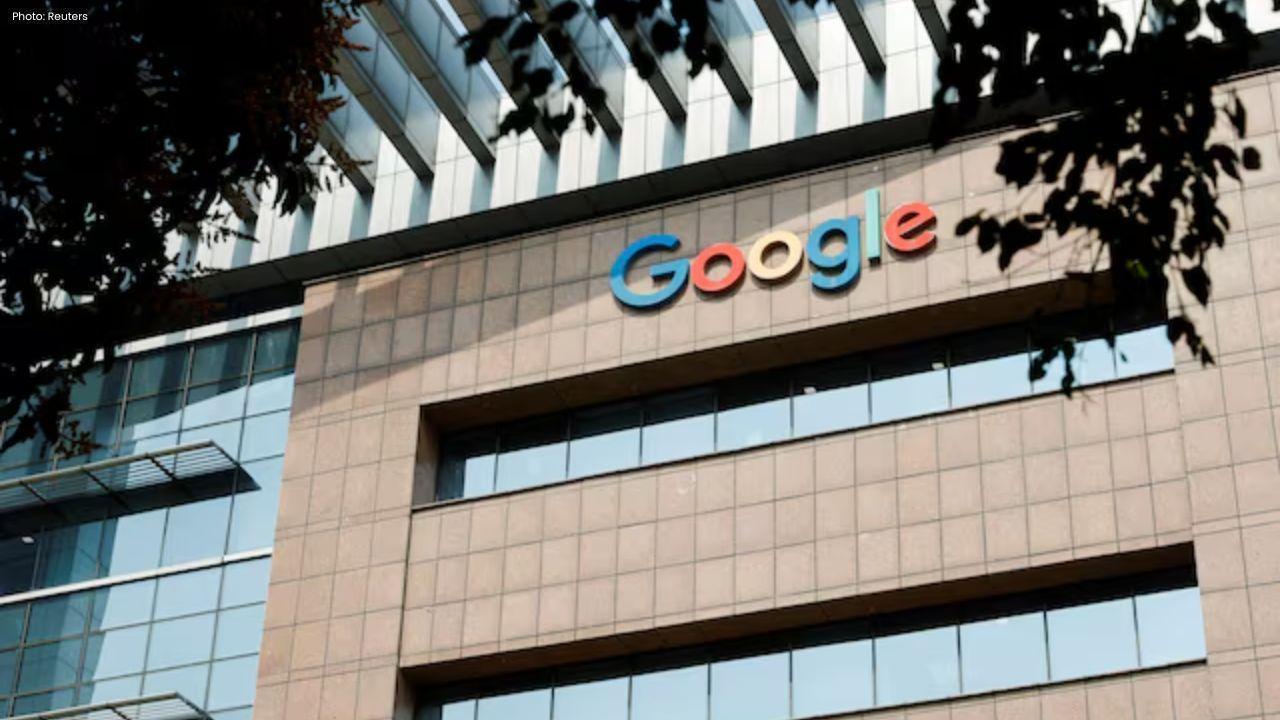
Google to Invest $15 Billion in India’s AI Data Hub
Google will invest $15 billion to build a massive AI data hub in southern India, marking its largest

Gautam Gambhir Praises Shubman Gill’s Leadership Success
India’s head coach Gautam Gambhir praised Shubman Gill’s leadership after the 2-0 Test series win ov

KL Rahul Guides India to Series Win Over West Indies 2-0
India defeated West Indies by seven wickets in the second Test, sweeping the series 2-0 with KL Rahu
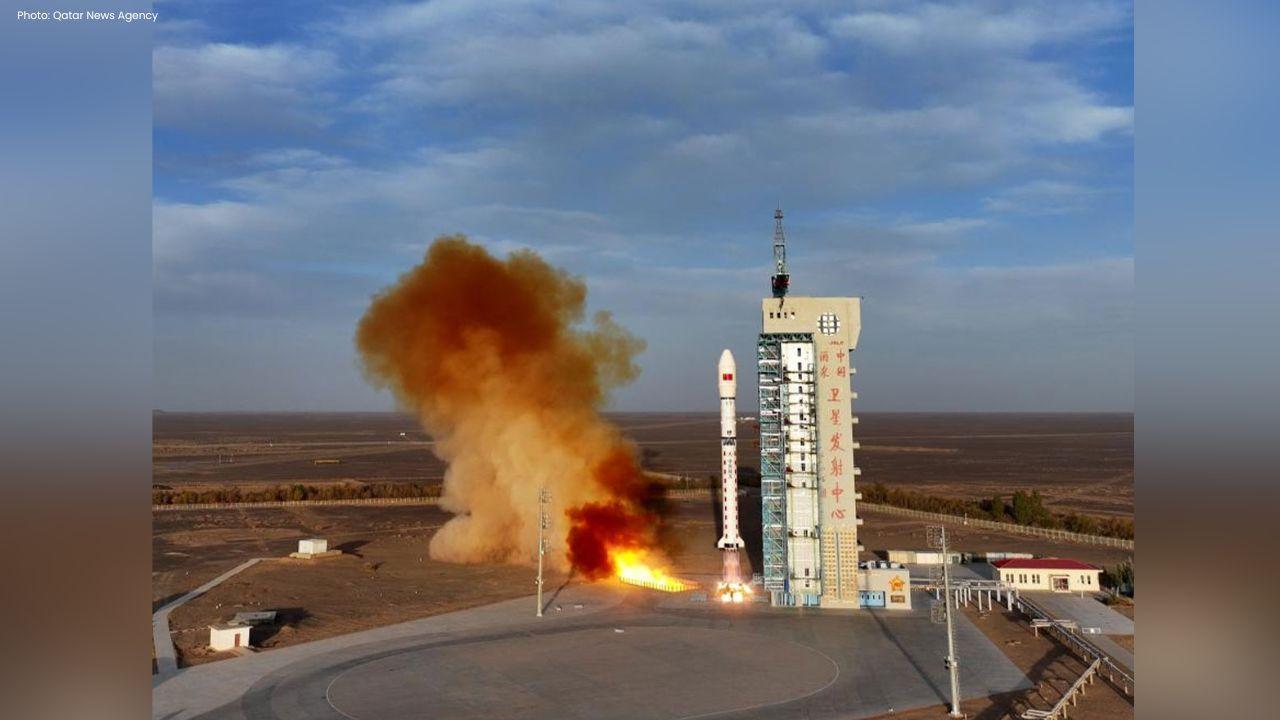
China Launches Shiyan-31 Test Satellite Successfully
China successfully launches Shiyan-31 satellite to test optical imaging technology, marking the 599t

Coach to Decide if Messi Plays Against Puerto Rico
Argentina coach Lionel Scaloni will decide Lionel Messi’s participation against Puerto Rico after fi

Pedri Credits Ferran Torres For Support And Guidance
Pedri highlights Ferran Torres’ support and guidance, saying strict advice and teamwork keep him mot